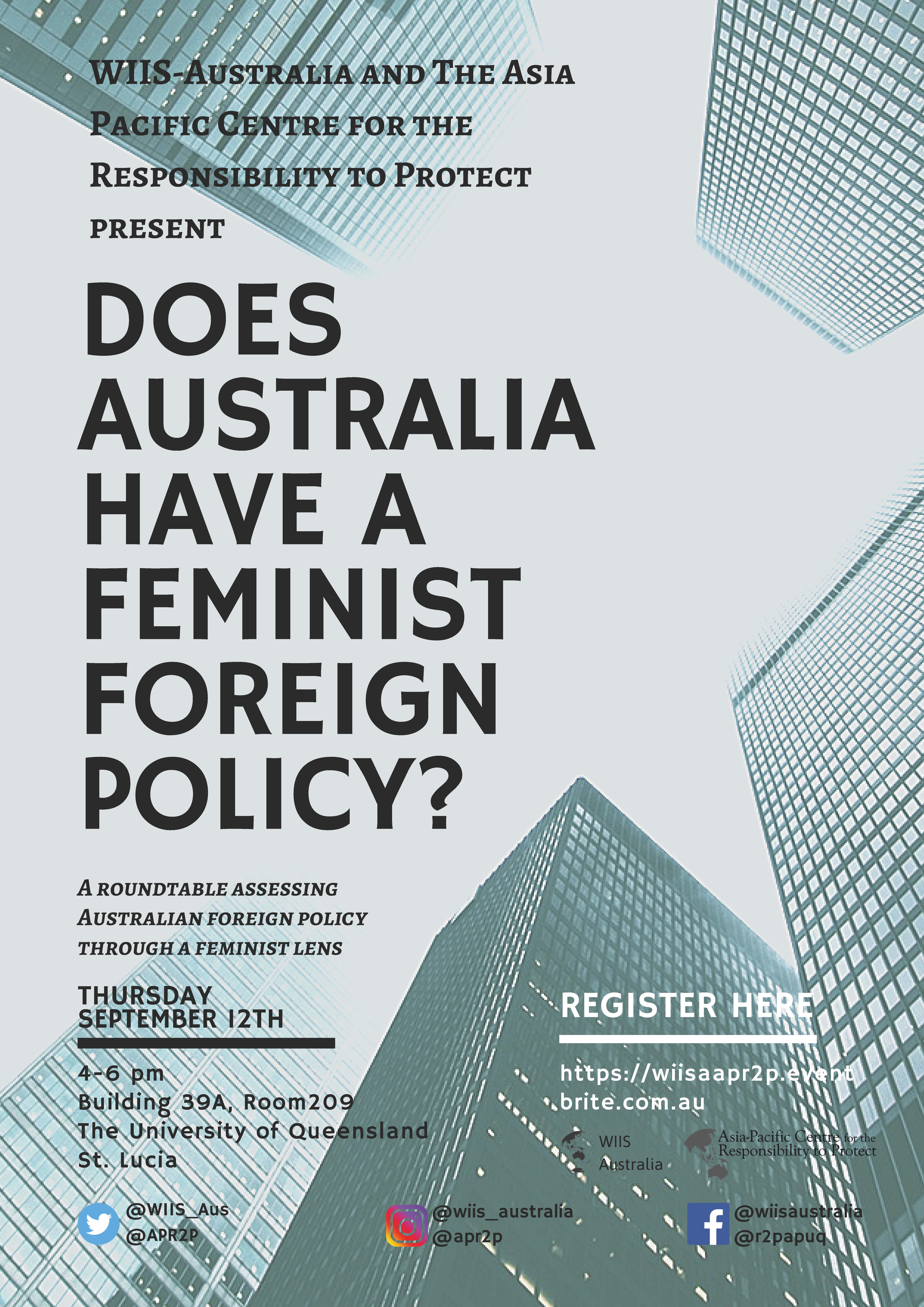Venue
Registration
All are welcome to attend. Please register here.
About the workshop
 Asia Pacific Centre for the Responsibility to Protect is progressing its efforts to advance women's leadership & representation in international peace & security through its collaboration with Women In International Security (WIIS) Australia. You are invited to attend a round table assessing Australian Foreign Policy through a feminist lens. The workshop will assess whether Australia has a feminist foreign policy and, if not, what are some steps that can be taken to remedy this?
Asia Pacific Centre for the Responsibility to Protect is progressing its efforts to advance women's leadership & representation in international peace & security through its collaboration with Women In International Security (WIIS) Australia. You are invited to attend a round table assessing Australian Foreign Policy through a feminist lens. The workshop will assess whether Australia has a feminist foreign policy and, if not, what are some steps that can be taken to remedy this?
The goal of this workshop will be to produce a written outcome that will include the following:
- The importance of an Australian feminist foreign policy,
- An assessment of the current Australian foreign policy
- Concrete recommendations on how to progress towards a more feminist foreign policy.
- This outcome will be disseminated through WIIS-International, The Asia Pacific Centre for the Responsibility to Protect, and the Lowy Interpreter.
Program and timings
Registration: 3.45-4.00pm
Workshop: 4.00-6.00pm
Location
Building 39A, Room 209, Campbell Road, St Lucia, The University of Queensland.
Enquiries
Contact the Centre Manager at the Asia Pacific Centre for the Responsibility to Protect via r2pinfo@uq.edu.au
Overview
This report has provided much needed quantitative assessment of gender imbalances in the apparatuses that undertake Australian foreign policy. However, its scope did not include an assessment of the nature of Australian foreign policy itself, nor the impacts this may have on the structures and workforces needed to implement the policy. The majority of countries have ‘gender-blind’ foreign policy. Such policies fail to take into account gendered discrimination, inequalities and violence, and lack of inclusion of women and other marginalised groups. The limited success of such policies has seen the emergence of feminist forms of foreign policy, described by Swedish Foreign Minister Margot Wallstrom as “standing against the systematic and global subordination of women.”
In order to meet the growing call for ethical and inclusive policy, Australia needs to reflect on its own foreign policy. Foreign Policy under Australia’s first female Prime Minister, Julia Gillard, was not explicitly focused on gender equality. However, her administration received praise for supporting inclusion and equality “at the very highest political level.” Australia’s first female foreign minister, Julie Bishop, eschewed the label of feminist, but spoke about making gender equality central to global peace and security. Many states that speak of their own feminist foreign policy are not actually implementing one. In reality, effective, inclusive, and enduring feminist foreign policy requires substantial resources and the reflective process of overturning male-dominated power structures.
WIIS-Australia will be convening a workshop on September 12th to assess whether or not Australia has a feminist foreign policy and, if not, what are some steps that can be taken to remedy this?
